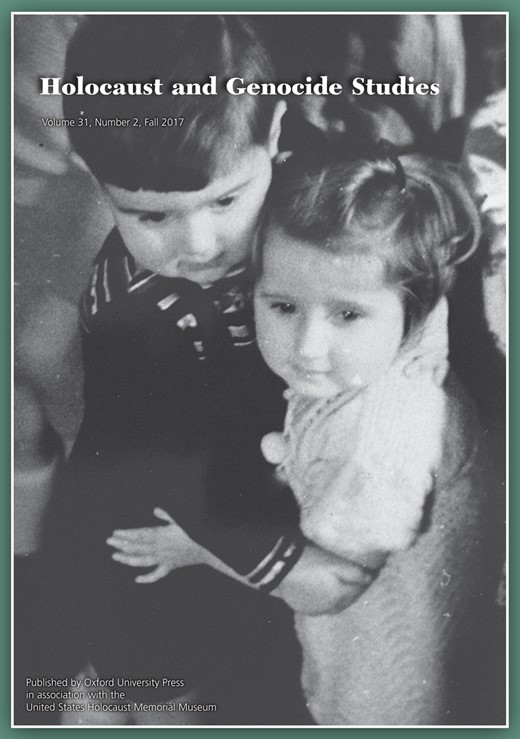-
Views
-
Cite
Cite
Aaron Hass, Reluctant Witnesses: Survivors, Their Children, and the Rise of Holocaust Consciousness
Arlene Stein, Holocaust and Genocide Studies, Volume 31, Issue 2, Fall 2017, Pages 308–312, https://doi.org/10.1093/hgs/dcx026Close - Share Icon Share
Extract
Arlene Stein, a child of Holocaust survivors, tells us that her book originated in a personal effort to make sense of her traumatic inheritance and a desire better to understand her survivor parents (particularly her father). However, its scope expanded to an exploration of how postwar cultural changes in America and the evolving position of American Jews affected Holocaust survivors, children of survivors, and the Holocaust-consciousness of society at large. Indeed, hundreds of articles, dissertations, books, and films focus on the psychological reverberations of the Holocaust for survivors and their children, and a goodly portion of Stein's book surveys this prodigious output. However, this effort underlies the actual thrust of Reluctant Witnesses: “How … did we get from there—a time when speaking of the Holocaust was mainly a private activity … to the rise of a robust Holocaust memorial culture that has broad resonance?” (p. 3).
The author writes, “the late 1940s and early 1950s, when survivors arrived, was a time of ‘moving on,’ of celebrating American victory, when victimhood was not yet associated with either compassion or virtue…. The Cold War years encouraged conformity, and made expressing negative feelings in public taboo” (p. 21). American Jews told survivors not to look back, but rather to embrace their new lives in America. Survivors were implicitly and explicitly encouraged to remain silent about their experiences. While they raised funds for the resettlement of survivors, American Jews psychologically distanced themselves from these foreigners.




